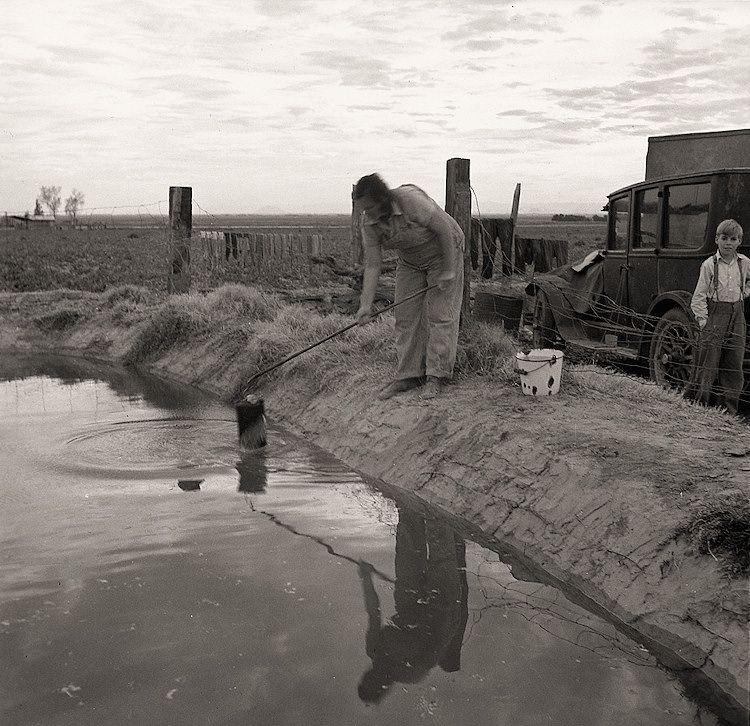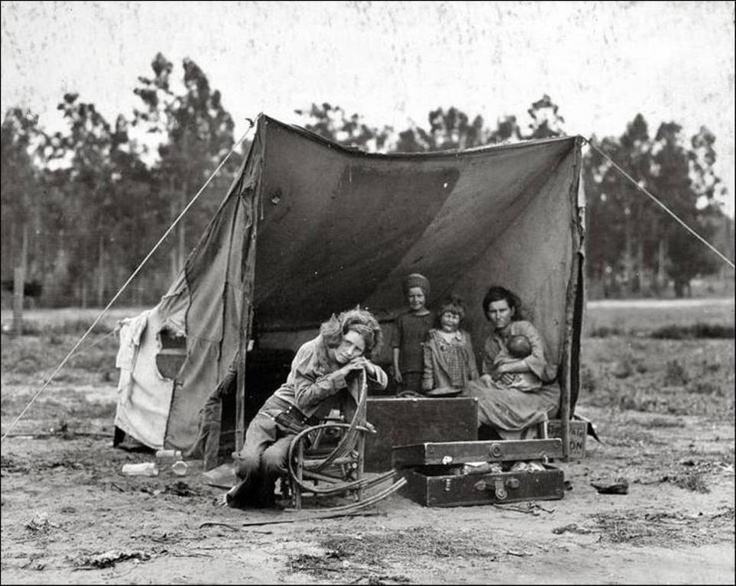The dust bowl was a period of severe dust storms that greatly damaged the ecology and agriculture of the american and canadian prairies during the 1930s; When winds blew, they raised enormous clouds of dust.
 Pin on Weather & Natural Disasters
Pin on Weather & Natural Disasters
Severe drought and a failure to apply dryland farming methods to prevent the aeolian processes caused the phenomenon.

The dust bowl of the 1930s was created by what phenomenon. What states where in the dust bowl ? When the dust bowl began, the great depression was already underway—it was one disaster on top of another. The phenomenon was caused by severe drought coupled with decades of extensive farming without crop rotation.
The process by which the surface of the earth is worn away by the action of water. The dust bowl was a period of severe dust storms that greatly damaged the ecology and agriculture of the american and canadian prairies during the 1930s; The dust bowl was a coincidence of drought, severe wind erosion, and economic depression that occurred on the southern and central great plains during the 1930s.
The dust bowl sometimes is considered solely as a drought or as an environmental disaster caused exclusively by the drought (e.g. How many years did the dust blow on the southern plains ? The dust bowl, also known as the dirty thirties, was a period of severe dust storms that greatly damaged the ecology and agriculture of the us and canadian prairies during the 1930s;
Dust cloud rolling over western kansas town, february 21, 1935 view larger. What is a drought?a drought is a prolonged period of abnormally low rainfall, leading to a shortage of water that adversely affects the growing of crops, the lives of animals. What circumstances conspired to cause the dust bowl?
1 unsustainable farming practices worsened the drought’s effect, killing the crops that kept the soil in place. Dust bowl definition, a period, throughout the 1930s, when waves of severe drought and dust storms in the north american prairies occurred, having devastating consequences for the residents, livestock, and agriculture there: At the same time, the climatic effects all but dried up an already depressed american economy in the 1930's creating millions of dollars in damages.
The southern plains in the 1930s. Shelterbelts had little effect in the dust bowl region in the 1930s. While the economic decline caused by the great depression played a role, it was hardly the only guilty party.
Severe drought and a failure to apply dryland farming methods to prevent the aeolian processes (wind erosion) caused the phenomenon. It was the most damaging and prolonged environmental disaster in american history. The dust bowl ravaged 1930s america.
The dust bowl was a natural disaster that devastated the midwest in the 1930s. Many farmers too “struck it rich,” or were bought out by large companies. The dust bowl was caused by several economic and agricultural factors, including federal land policies, changes in regional weather, farm economics and other cultural factors.
With insufficient understanding of the ecology of the plains. The weather conditions that contributed to the dust bowl were an unusually wet period followed by a sustained drought, combined with high winds. It is called the dust bowl, a sandstorm phenomenon that occurred in the united states in the 1930s and lasted almost ten years.
Area of the great plains made worthless for farming by drought and dust storms in the 1930s. It was an economic and environmental disaster that severely affected much of the united states of america. Surprisingly, dust bowl facts reveal that the 1930s dust bowl was not the only dust storm period in the history of the usa.
Terms in this set (20) the dust bowl resulted from: What created the dust bowl?. The dust bowl was not a strictly natural phenomenon.
Then we introduced an estimate of the increased dust source from crop failure in the 1930s. The phenomenon devastated 100 million acres of cropland across the south and the midwest, and tens of thousands of farmers were forced to abandon their. Terms in this set (11) dust pneumonia.
Unlike the dust storms that form in arizona or new mexico that last only a few hours. The dust bowl severely destroyed the ecology of the midwest, while at the same. A farmer and his two sons during a dust storm in cimarron county, oklahoma, 1936.
The dust bowl brought ecological, economical and human misery to america during a time when it was already suffering under the great depression. The dust bowl was a series of periodic dust storms in the midwestern prairies created by wind erosion of the soil. This created a drought that, as is typical for models forced by 1930s ssts, was centered too far into the southwest relative to the observed drought.
But, weather conditions were not the only cause. Donald worster's classic chronicle of the devastating years between 1929 and 1939 tells the It was the worst drought in north america in 1,000 years.
Buried under a layer of rainforest green. The great dust bowl of the 1930’s the dust bowl, or the dirty thirties, was a period of severe dust storms causing major ecological and agricultural damage to american and canadian prairie lands from 1930 to 1936 (in some areas until 1940). Colorado, kansas, texas, oklahoma, and new mexico.
Overgrazing, overplowing, severe drought, high heat and winds, grasshoppers and jackrabbits. Differential weathering 2) what process transforms a metamorphic rock into an igneous rock? 1) the dust bowl of the 1930s was created by what phenomenon?
The dust bowl was an area of drought and severe wind erosion in southwestern kansas, southeastern colorado, northeastern new mexico, and the panhandles of oklahoma and texas during the 1930s. This was guided by maps of wind erosion prepared in the 1930s by the newly created soil conservation. The effects of the dust bowl drought devastated the united states central states region known as the great plains (or high plains).
The dust bowl drought of the 1930s was arguably one of the worst environmental disasters of the 20th century. The era became known as the legendary dust bowl. The dust bowl term is used to describe the massive dust storms that formed in the plains during the 1930s.
Facts about the dust bowl for kids. They were effective in wetter parts of the great plains, but after the 1930s. The boom times of the 1920s effected not just people in the city.
 The dust bowl Dust bowl, Great depression photos, Great
The dust bowl Dust bowl, Great depression photos, Great
 The History Place Dorothea Lange Photo Gallery
The History Place Dorothea Lange Photo Gallery
 ‘Plague Upon the Land’ Scenes From an American Dust Bowl
‘Plague Upon the Land’ Scenes From an American Dust Bowl
 Dust Bowl Rare " LIFE " Photo From Oklahoma, 1942
Dust Bowl Rare " LIFE " Photo From Oklahoma, 1942
 History Day Dust Bowl Video Dust bowl, National history
History Day Dust Bowl Video Dust bowl, National history
 Photo Gallery THE DUST BOWL in 2020
Photo Gallery THE DUST BOWL in 2020
 Company housing for cotton workers near Corcoran
Company housing for cotton workers near Corcoran
 The Great Depression from 1929 1937, desperation, train
The Great Depression from 1929 1937, desperation, train
 "The Dust Bowl" chronicles the worst manmade ecological
"The Dust Bowl" chronicles the worst manmade ecological
 THE DUST BOWLWorst manmade ecological disaster in
THE DUST BOWLWorst manmade ecological disaster in
 Squatter Camp March 1937. "Water supply Open settling
Squatter Camp March 1937. "Water supply Open settling
 "Environmental Catastrophe" PBS film on the "Dust Bowl
"Environmental Catastrophe" PBS film on the "Dust Bowl
 47 Dust Bowl Pictures That Are Still Haunting Today
47 Dust Bowl Pictures That Are Still Haunting Today
 Photos of Dust bowl, Old photos, Dust storm
Photos of Dust bowl, Old photos, Dust storm
 The Dust Bowl Returns Essay writing
The Dust Bowl Returns Essay writing
 Cody Complex. 5 3/4" Alberta spear point or knife form
Cody Complex. 5 3/4" Alberta spear point or knife form
 Dorothea Lange Dust Bowl The History Place Dorothea
Dorothea Lange Dust Bowl The History Place Dorothea

